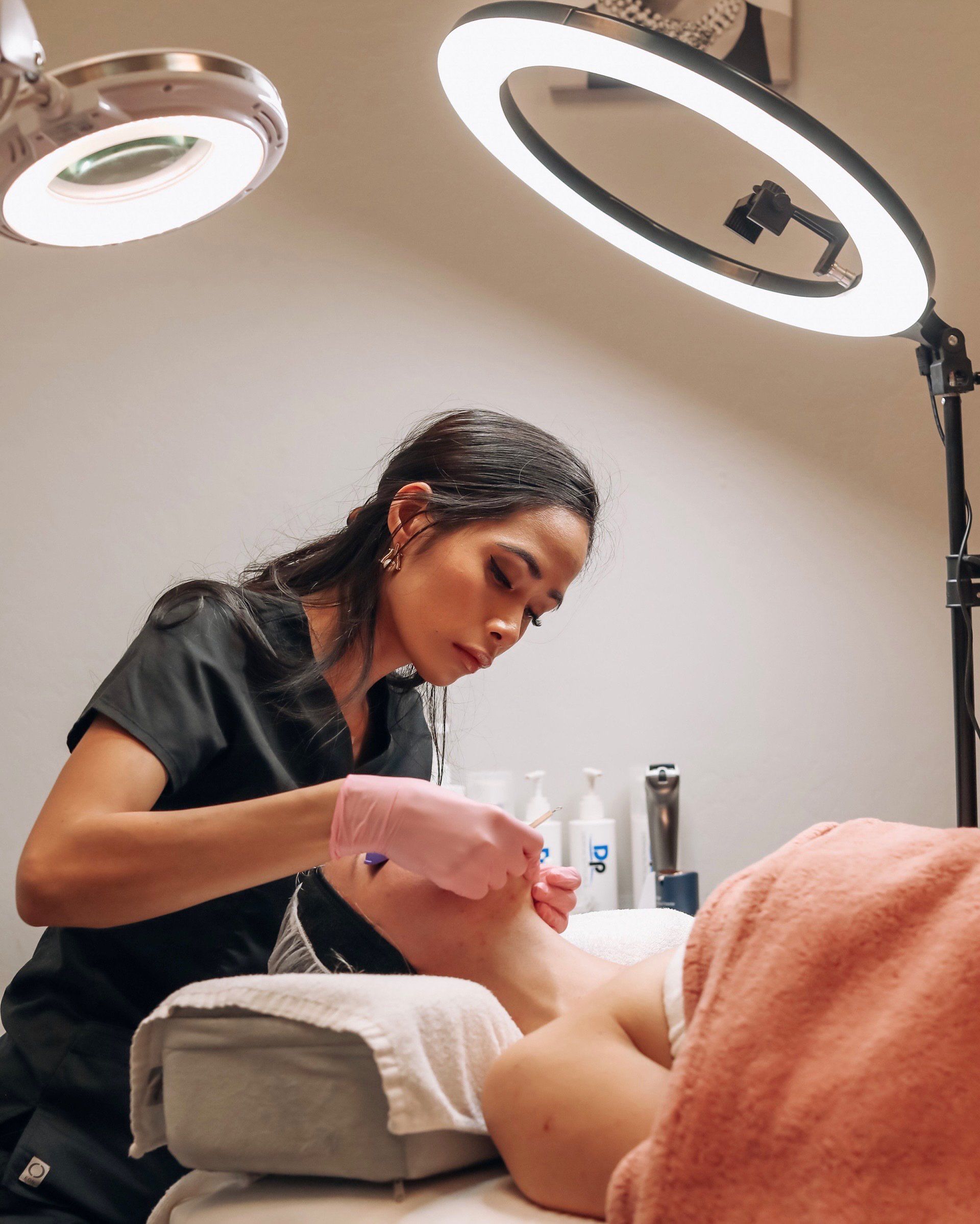How The Procedure Is Performed
The first step in any acne surgery is to cleanse the area to be treated. This helps to remove any dirt, oil, or makeup that could potentially clog the pores and cause more breakouts. Once the area is clean, a local anesthetic will be injected into the treatment area. This numbs the skin and allows the surgeon to perform the procedure with minimal discomfort.
Punch Excision
There are several different types surgical procedures, each of which is designed to treat different types of acne. One common type of acne surgery is called punch excision. Punch excision involves using a small punch tool to remove individual acne scars. This type of surgery is often used for deep lesions or scars that are difficult to treat with other methods.
Subcision
Another type of acne surgery is called subcision. Subcision involves inserting a needle under the skin to break up the fibrous bands that are responsible for holding the scar in place. Once these bands are broken, the scar can begin to heal itself and become less visible over time. This type of surgery is often used for shallow scars or scars that have not responded well to other treatments.
Incision And Drainage
The last type of acne surgery that we'll mention is incision and drainage. This type of surgery is typically used for large, deep, or infected cysts. The surgeon will make a small incision in the cyst and then drain the pus or fluid that has built up inside. This helps to reduce the size of the cyst and can also help to prevent further infection.
Recovery Time
Most people can expect to take about two weeks off from work or school following acne treatments. Not a lot of people can afford or want to take this much time off, which so this is also something the might affect your decision to go through with the procedure.
Cost
The cost of acne surgery will vary depending on the type of procedure you have, as well as the surgeon you choose. It can cost from a few hundred to a couple thousand to get acne surgically removed.
Possible Risks & Side Effects
As with any surgery, there are some potential side effects and complications associated with acne surgery. These include infection, bleeding, scarring, and changes in skin sensation. Most side effects are mild and temporary, but serious complications are possible. That's why it's important to talk to your registered nurse esthetician or dermatologist about all of the risks and benefits of acne surgery before you decide whether or not it's right for you.
Frequently Asked Questions
Can Acne Be Removed Permanently
Acne can be removed with surgery. However, it is important to keep in mind that acne surgery is not a cure for acne. The goal of surgery is to improve the appearance of the skin by reducing the visibility of scars. It is still possible for acne to develop even after surgery. If you are considering acne surgery, it is important to speak with a board-certified dermatologist or registered nurse esthetician. They will be able to evaluate your individual case and determine which type of procedure would be best for you.
How long does acne surgery take?
Surgical procedures usually take between 30 minutes and two hours, depending on the type of procedure you have.
Is acne a lifelong disease?
No, acne is not a lifelong disease. However, it is a chronic condition, which means that it can last for many years. In some cases, acne may go away and never come back. In other cases, it may come and go throughout a person's life.
Acne Surgery Alternatives
If you are not interested in invasive surgery or looking for a more affordable or less invasive acne treatments, there are some alternative treatments that can help improve the appearance of your skin. The advanced treatment we offer here includes:
- Microneedling
- IV Therapy (Specialized Cocktail)
- Micro-Peel (Different from a chemical peel)
- LED Therapy
This is advanced treatment for acne is not only effective but less invasive, cost effective, less downtime, and minimal risk of infection. What more can you ask for in a proven acne treatment? Our techniques are based on years of experience in the medical aesthetics industry and offer our patients the best possible results when resurfacing their skin to the smooth, even complexion they once had.
If you have acne and would like to explore your options for acne treatments, please call us today to schedule a consultation. We would be happy to help you achieve clear, beautiful skin and bring its health back to life!




